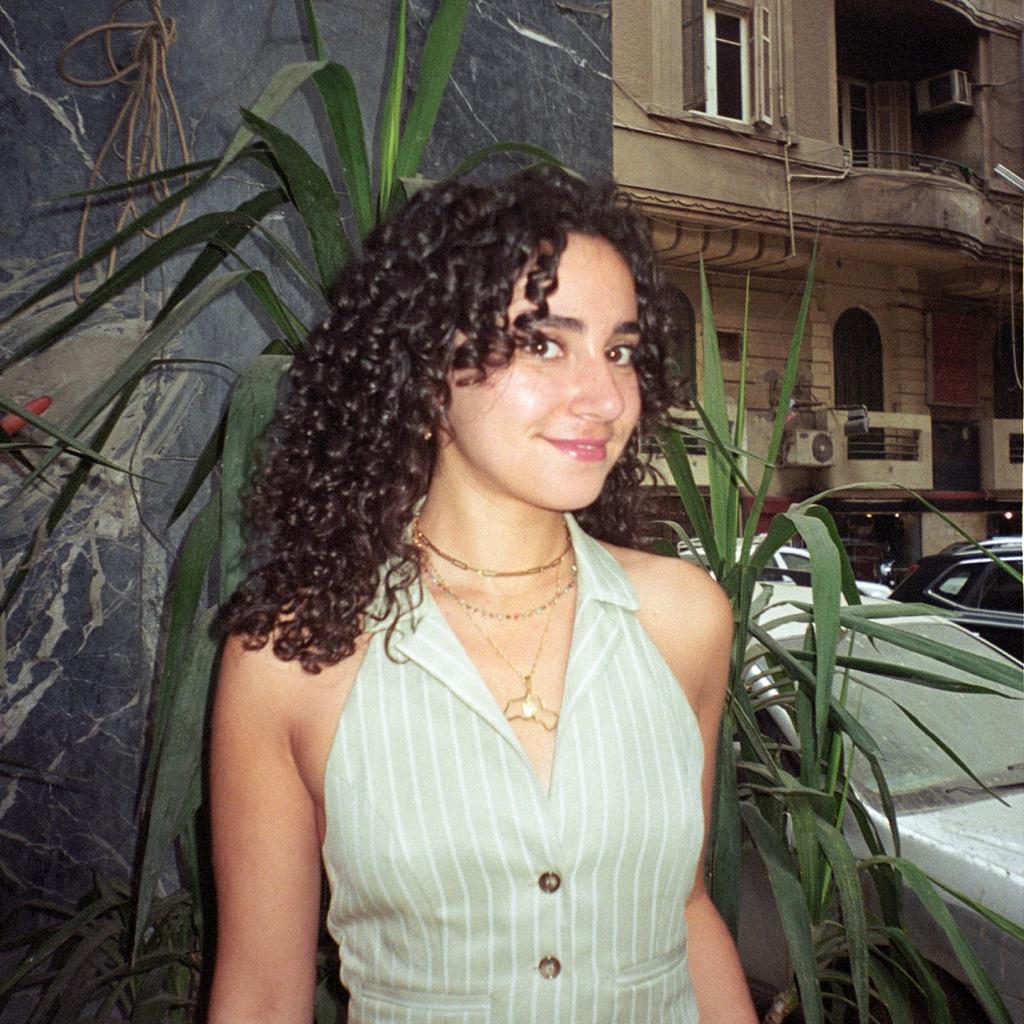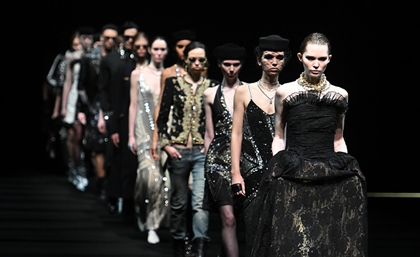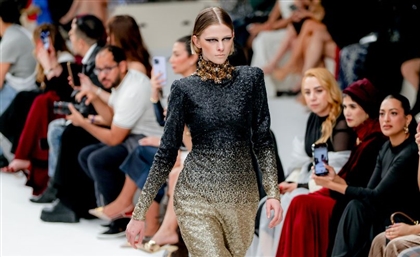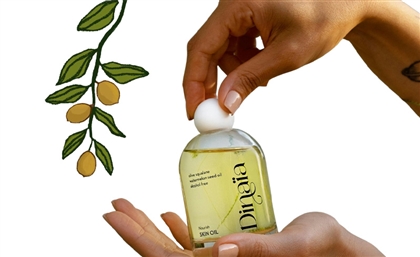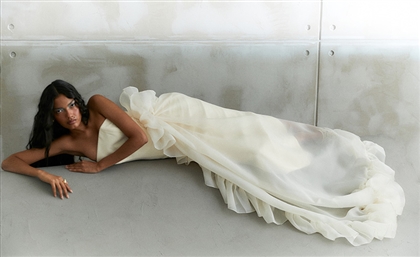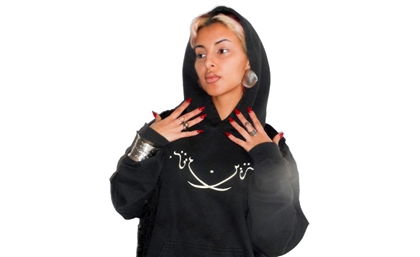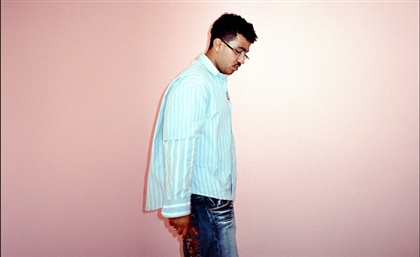How Lebanese Label Emergency Room’s Probes the Complexity of Home
If their upcycled pieces signal the eclecticism and vibrancy of Lebanese society, their SS’23 ‘Home Sweet Home’ Beirut debut runway is an homage to the country’s resilience.
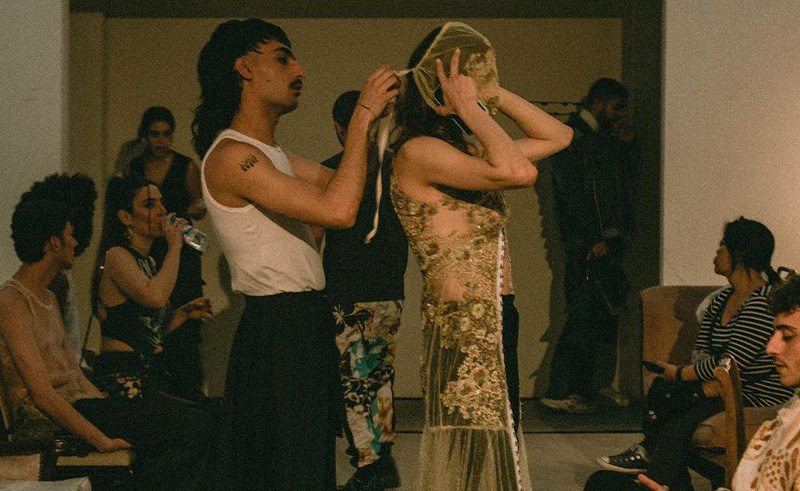
When weaving one’s way through the traditional souks in Tripoli, northern Lebanon, an intimate connection to the city’s materials is easily made. Fabrics, deadstock and second-hand garments abound and, together, form the contemporary fibres of the town’s sartorial heritage. Family stall-keepers have offered up these materials for weavers, tailors and locals across generations.
When invited to work on a project with local seamstresses in Tripoli, the vibrant customs and contours of these souks immediately caught the attention of Lebanese-French fashion designer Eric Ritter, founder of the Beirut-based upcycling fashion label, Emergency Room.
-c82c118f-80d0-4cf4-9c01-525ef219689c.jpg) “Having grown up in Beirut with quite a privileged upbringing, I had no idea of the markets that existed in the north of the country,” Ritter shared with me, when I paid a visit to the brand’s showroom last month. “So, the baleh [a colloquial term for second-hand market] receive clothes in bulk from Europe and are sold at gradually decreasing prices – but I was shocked to see whole piles of clothes being thrown into the river at the end of the season,” he continued.
“Having grown up in Beirut with quite a privileged upbringing, I had no idea of the markets that existed in the north of the country,” Ritter shared with me, when I paid a visit to the brand’s showroom last month. “So, the baleh [a colloquial term for second-hand market] receive clothes in bulk from Europe and are sold at gradually decreasing prices – but I was shocked to see whole piles of clothes being thrown into the river at the end of the season,” he continued.
The threads of inspiration for the brand Emergency Room were sewn: paying homage to the localism of the baleh, whilst healing the damages inflicted on them by capitalist influence, Emergency Room was born in 2018 from a coalescence of sustainability and social justice. Its one-of-a-kind pieces are conceived from a patchwork of materials, colours, prints and textures, embodying the eclecticism and diversity of Lebanese cultural identity.
-bc1d68e0-70e2-4e79-b7dc-b14cac492a8d.jpg) In stitching used cloth and fabrics together to form the brand’s signature denim vests, halter tops, embroidered lace masks, and patchwork flares, Emergency Room reconfigures and reconciles the pieces of a fractured industry into a cohesive and regenerative practice, something which they have sought to pass on in recent collaborative projects such as Middlesex University Dubai’s School of Fashion.
In stitching used cloth and fabrics together to form the brand’s signature denim vests, halter tops, embroidered lace masks, and patchwork flares, Emergency Room reconfigures and reconciles the pieces of a fractured industry into a cohesive and regenerative practice, something which they have sought to pass on in recent collaborative projects such as Middlesex University Dubai’s School of Fashion.
Yet, Emergency Room is a story of personal healing as much as it is collective and structural. Conceptualised as ‘ER’ to reflect the same initials as the founder Eric Ritter, the label’s name bears witness to how it helped heal his relationship to fashion and reconnect to it, after several years of feeling alienated from the childhood passion that had always inspired him.
“After graduating with a degree in fashion design, I moved to Paris to work at a luxury fashion studio and supposedly ‘live out my dream.’ But I ended up being miserable there,” he divulged.
“I was drawing dresses every day for a living, but it felt so surface-level. It made me question myself and think, maybe I had idealised fashion?”
“I realised that clothes are more than just dreams meant to be worn by a select few,” Ritter reflects, speaking about the formative period in the baleh that catalysed Emergency Room. “I don’t care about just dressing up: I care about alternative ways of producing.”
-9d50583c-239c-47eb-9664-fcd5aec09fd1.jpg) Celebrating their 5th anniversary this year, their ‘Home Sweet Home’ collection features hand-crocheted face masks adorned with crystals, tank tops of upcycled lace and pleated pants from deadstock wool. The brand’s signature aesthetic of reworked denim and poplin was reworked to incorporate elements from evening dresses, and the collection overall cast darker hues for a classic, timeless look.
Celebrating their 5th anniversary this year, their ‘Home Sweet Home’ collection features hand-crocheted face masks adorned with crystals, tank tops of upcycled lace and pleated pants from deadstock wool. The brand’s signature aesthetic of reworked denim and poplin was reworked to incorporate elements from evening dresses, and the collection overall cast darker hues for a classic, timeless look.
‘Home Sweet Home’ was sent down the runway first at Dubai Fashion Week in March this year, before making its veritable homecoming in Beirut in May. Recounting the experience of exhibiting in both cities, an introspective blog post from their website reads:
“We’ve been regularly exhibiting at Dubai Fashion Week for the last year and a half. However, orchestrating a fashion show in Beirut comes with its own symbolism. While Dubai stands for international recognition, Beirut stands for endless resilience.”
-90e2a1e4-7348-4ab9-8b01-84c6d86d768f.jpg) Amid a spiralling economy and the explosion of the port of Beirut in 2020, networks of solidarity and support become all the more vital in Lebanon. ‘Home Sweet Home’ in Beirut represented community and commemoration, an ode to all that the brand has endured and gathering for the people that helped it grow.
Amid a spiralling economy and the explosion of the port of Beirut in 2020, networks of solidarity and support become all the more vital in Lebanon. ‘Home Sweet Home’ in Beirut represented community and commemoration, an ode to all that the brand has endured and gathering for the people that helped it grow.
“My grandmother Hoda was one of the models! She’s 80 years old,” Ritter tells me with a smile. “Alongside models from Local Vice, we casted friends, people of all genders, ages, walks of life – and although each piece revived our archival looks, we made sure each outfit was tailored to reflect everyone’s unique spirit and character. We even opened the catwalk in Beirut with the first ever model we worked with in 2018, to mark the milestone.”
-3477f9bd-c45b-42de-a8ca-2fbe7939a4ec.jpg) The runway’s accompanying playlist, curated by Alex Chahine, featured classic favourites in French, Arabic and English – what you’d expect to hear when switching through radio channels in the car in Lebanon. Accompanied by visuals by Nina Abouzeid, the soundtrack is a sonic rendition of Lebanon’s multifaceted cultures and the complex notion of ‘home.’
The runway’s accompanying playlist, curated by Alex Chahine, featured classic favourites in French, Arabic and English – what you’d expect to hear when switching through radio channels in the car in Lebanon. Accompanied by visuals by Nina Abouzeid, the soundtrack is a sonic rendition of Lebanon’s multifaceted cultures and the complex notion of ‘home.’
The motif of ‘home’ has been explored before in their ‘Borderlines’ collection, which queried the arbitrary divisions of nations, passports and visas. Fictive passports of the ‘Republic of Neverland’ were printed onto jacket backs, whilst football shirts of different teams and countries were cut open and restitched, dissolving into placelessness.
-954b9458-afc3-433d-bc7b-609845a50d69.jpg) ‘Home Sweet Home,’ for its part, takes a more intimate and introspective approach. Guests of the show at the Beirut Art Centre in May were given a heartfelt note from Eric, which begins with the words:
‘Home Sweet Home,’ for its part, takes a more intimate and introspective approach. Guests of the show at the Beirut Art Centre in May were given a heartfelt note from Eric, which begins with the words:
‘Five years ago, I was deeply depressed.
It is in that very dark moment
That I decided to establish Emergency Room.
Through time, one shop became two,
And then a workshop was added.
As the years passed, a room became a home.’
A room became a home. When fashion collections beget social collectivity and tight ‘knit’ home-making, a legacy is truly built. This much is also clear when stepping into Emergency Room’s showroom in Downtown Beirut, where polaroid images on the walls are candid vignettes of the models, clients and wider community that has materialised since the brand’s inception.
Recently, the brand has adopted regional pricing, where prices are levelled down for those living in Lebanon to acknowledge the country’s spiralling currency and fractured infrastructure. As well as expressing gratitude for local support and returning to the brand’s principle of localism, the move, to me, reflects a small example of the regenerative efforts that can be seen everywhere in Lebanese society in the wake of collective trauma – to mend, build and mutually heal.
- Previous Article Lake Como’s Café Dior Celebrates The Label's Signature Toile de Jouy
- Next Article Monochrome Monday: The Electric Blue Edition

